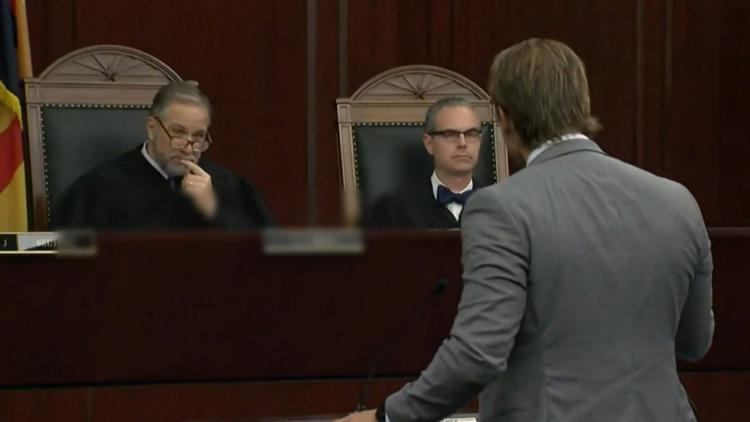
Attorneys presented their arguments before the Arizona Supreme Court on Thursday regarding a DNA match in a high-profile murder case that raised questions about Fourth Amendment rights.
In February 2015, 31-year-old Allison Feldman was murdered in her Scottsdale home. Three years later, a DNA match led police to Ian Mitcham as the prime suspect.
Mitcham’s defense team raised concerns about the legality of how the blood sample was obtained, arguing that it violated Mitcham’s Fourth Amendment rights.
The case involved the use of familial DNA, where DNA found at the crime scene was matched to one of Mitcham’s brothers who was already in prison. Subsequently, Mitcham’s own DNA sample from a 2015 DUI was used to link him to the crime scene.
After the trial court judge initially threw out the DNA evidence in 2022, the Arizona Court of Appeals ruled in favor of using the evidence at trial. However, Mitcham’s defense team appealed once again to the Arizona Supreme Court.
The debate centered around the boundaries of collecting DNA samples and whether the evidence obtained was legally admissible in court.
While prosecutors argued that the DNA sample was crucial evidence in a crime and therefore permissible to use, Mitcham’s attorneys emphasized the importance of upholding legal standards throughout the investigation process.
As the Arizona Supreme Court deliberates on the case, the outcome remains uncertain. However, for Allison Feldman’s family, the pursuit of justice continues, with her father expressing determination to see the case through to the end.
UP TO SPEED




